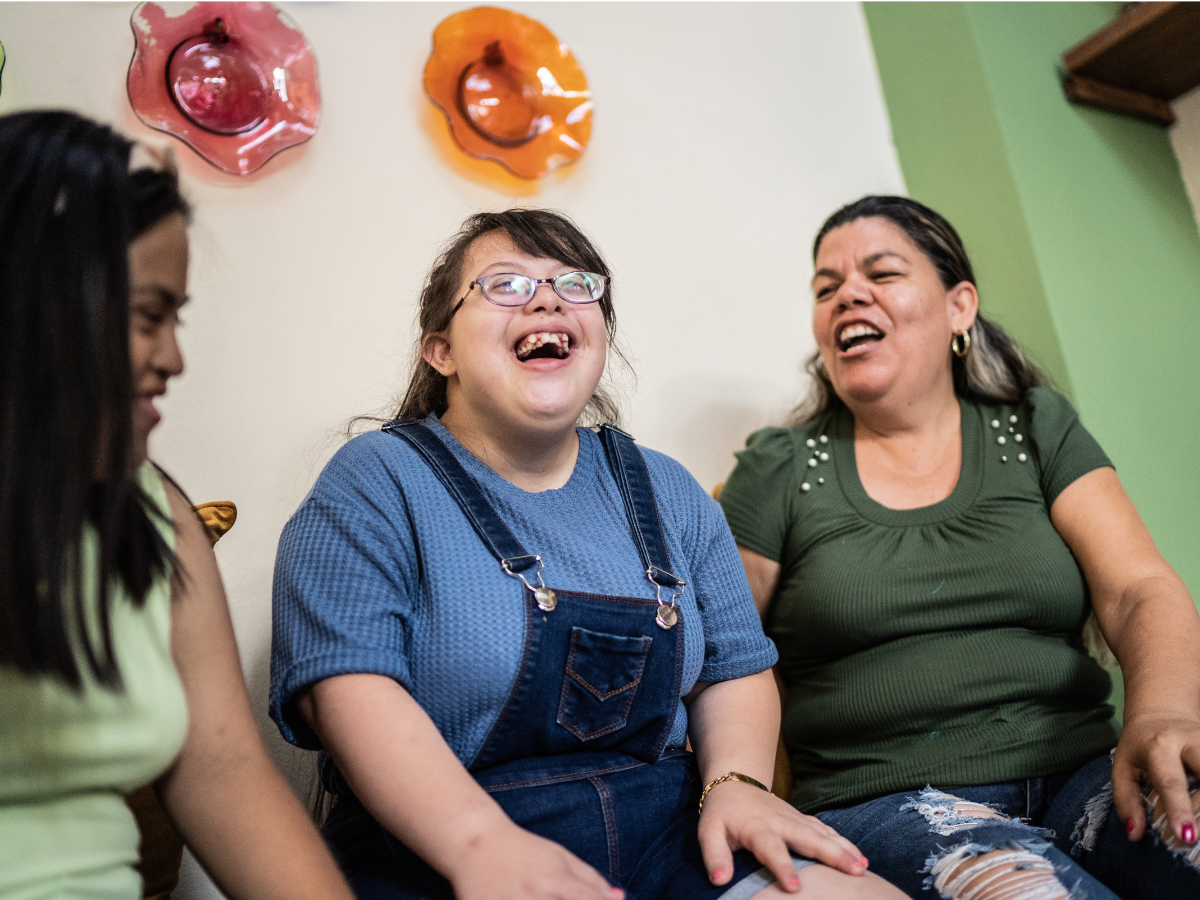People living with intellectual and developmental disabilities often have a support system of friends, family, and caregivers to help them on their journeys to live independent lives. It’s important to show gratitude for those who do so much to show us that they care!
Below, we’ll learn more about caregiver appreciation and the value of giving back to your support system. Here are some handy questions you can ask to show those around you that you see their effort and appreciate them.
7 Caregiver Appreciation Questions & Conversation Starters
It can be challenging to share your gratitude with those who are important to us. Here, we’ve made it easy to show you care. Try asking these questions for caregivers and for those who support you in your daily life.
1. How do you like to take care of yourself and recharge?
One of the best ways to show how much caregivers and other supportive people mean to you is by making sure they are taking care of their own needs. Try asking your caregiver the following questions:
- What do you like to do to relax?
- Do you feel you have enough time to recharge after a long day?
- Is there anything I can do to make sure you are taking care of your own needs?
Many people living with intellectual and developmental disabilities (IDDs) know how much their support system means. That’s why it’s vital to practice caregiver appreciation and celebrate those who help us in our daily lives.
2. What have you learned about yourself through our time together?
The relationship between adults with intellectual disabilities and their supporters is a special bond. You learn a lot about each other, and a lot about yourselves, and this is something that shouldn’t be taken for granted.
Ask your caregiver what this relationship has meant to them, and what they’ve discovered about their own lives by sharing it with you.
3. Is there anything you wish you had more support with?
Sometimes even the most experienced caregivers could use a little help. Ask your caregiver if they feel they could benefit from an extra hand. Don’t be shy–ask them what specific areas they might wish they had more support in.
Thankfully, there are lots of resources available to us in our quest to live fulfilling, independent lives. California’s Self-Determination Program (SDP) is a great starting point for adults with IDDs who wish to maximize the opportunities available in our state.
4. What are some of your favorite hobbies or activities?
This is the fun part! What activities does your caregiver enjoy? Ask them how you might be able to help them with their own passions and how the two of you can enjoy these things together.
5. What is one thing you want other people to know about you?
Caregivers may find that they don’t get enough attention themselves. Ask your favorite support person what they wish others knew about them. It will show them how grateful you are for their care, and it might just make their day!
6. Can you share a favorite memory we’ve made together?
Spending time with others creates an abundance of memories. Ask your caregiver what they have enjoyed about your time together, and see if you two share a special memory that you fondly look back on.
Revisiting memories can also give you the chance to learn what kinds of activities and experiences mean the most to your caregiver.
7. Is there anything I can do to help you feel loved and supported?
Our caregivers spend so much time making us feel loved and cared for. It’s time to return the favor.
Ask your friends, family, and caregivers what you can do to show them you care for them as much as they care for you. It will mean the world to them!
Discover More Disability Resources & Support
It always helps to stay informed of useful resources that are accessible to people with disabilities.
Check out NeuroNav’s independent facilitation services, which are available to participants in the Self-Determination Program seeking enhanced support to achieve their goals. We’re here to serve as a resource for adults living with intellectual or developmental disabilities who are looking for quality information to begin or continue their path to independence.



.jpg)
